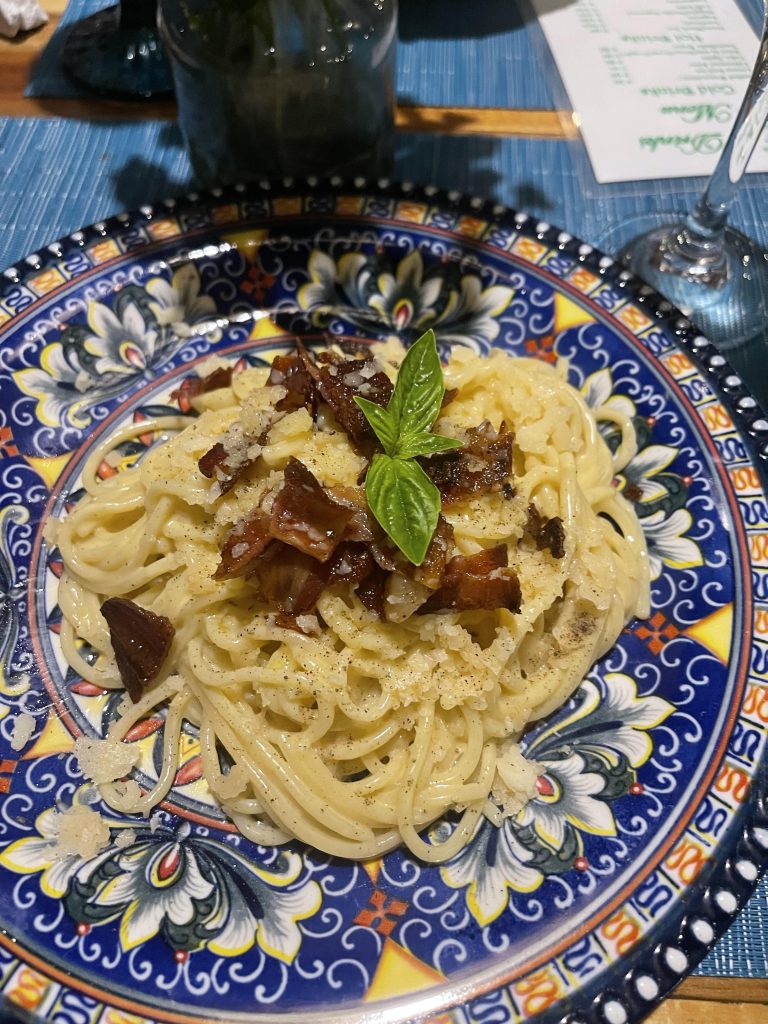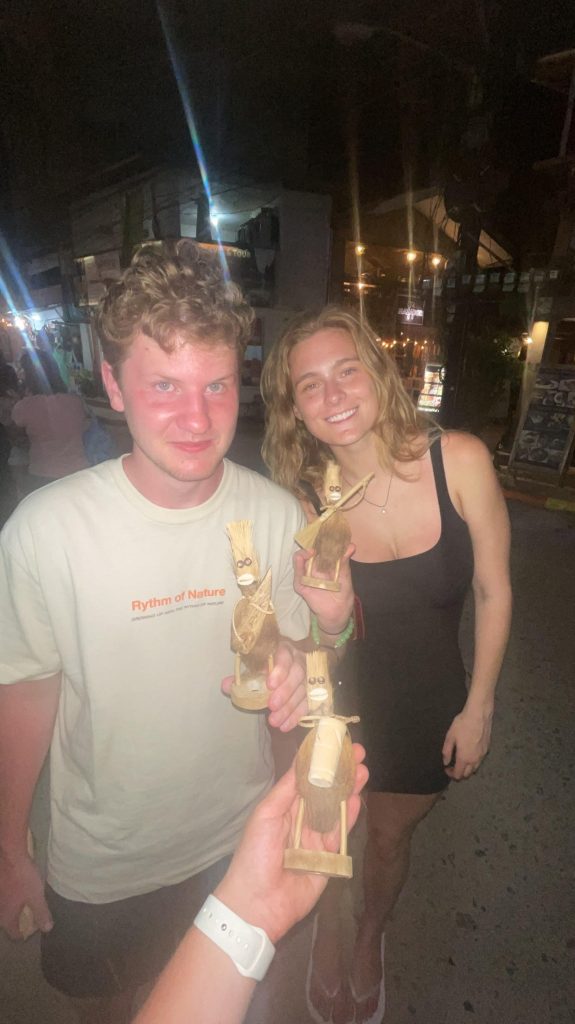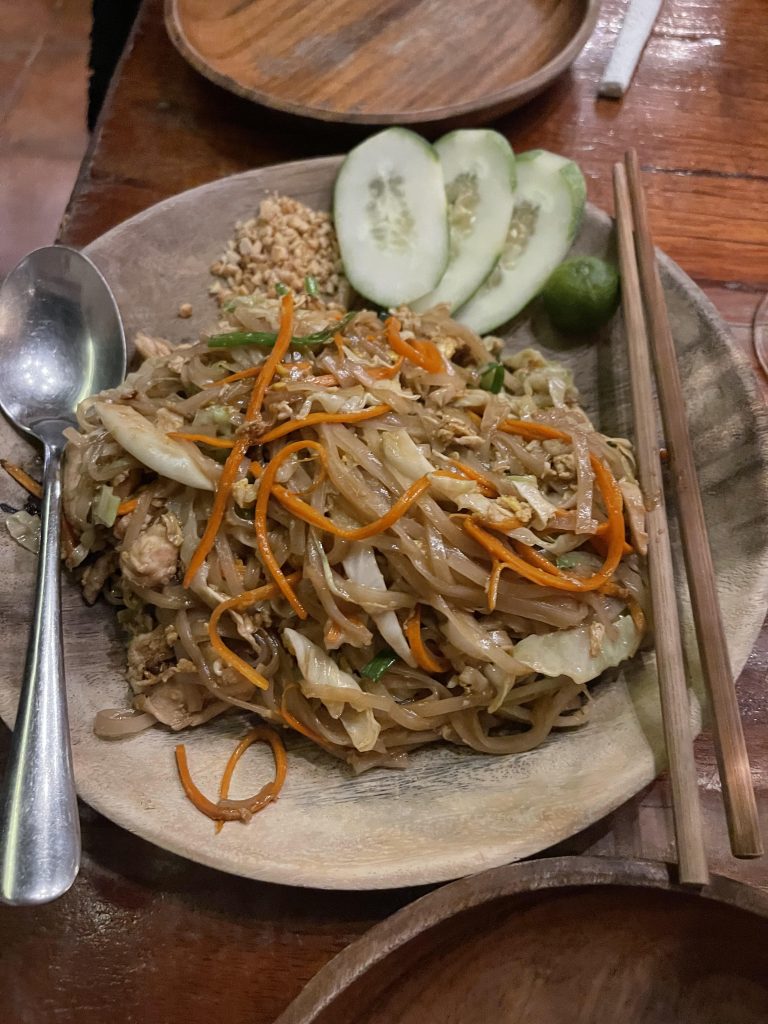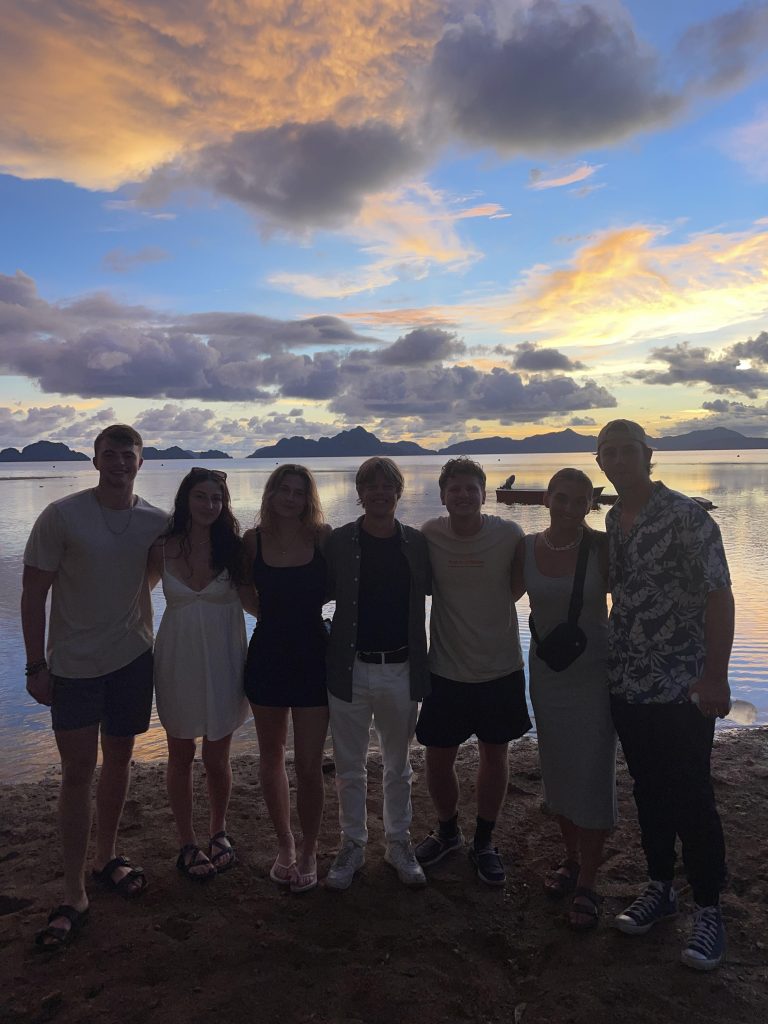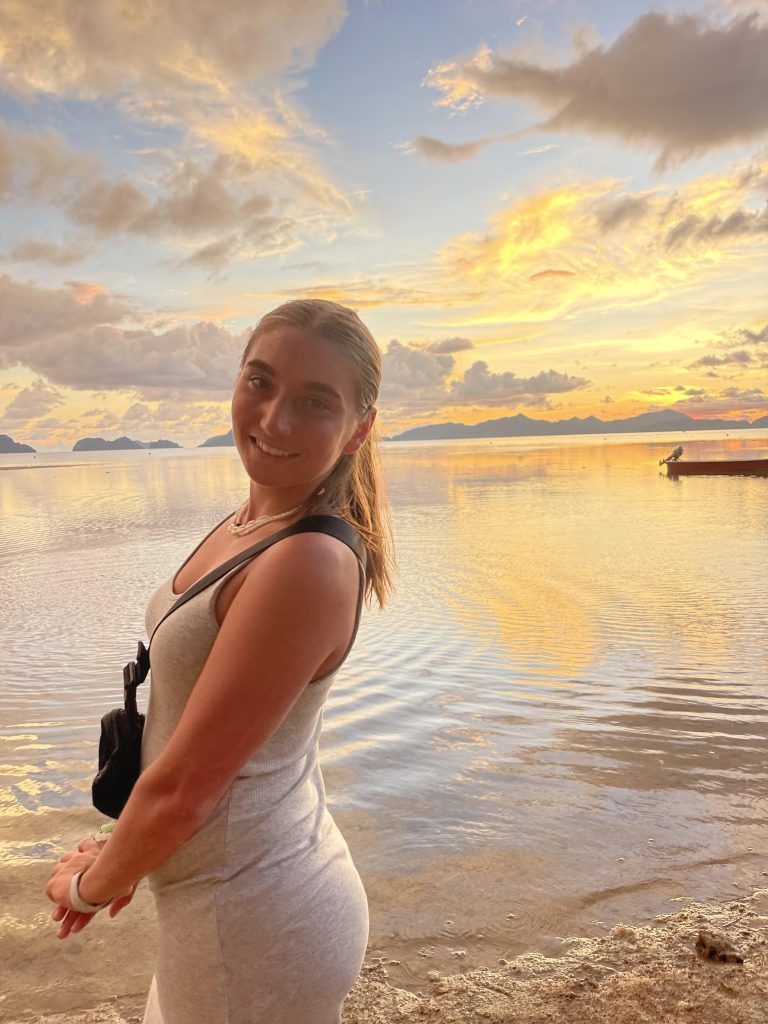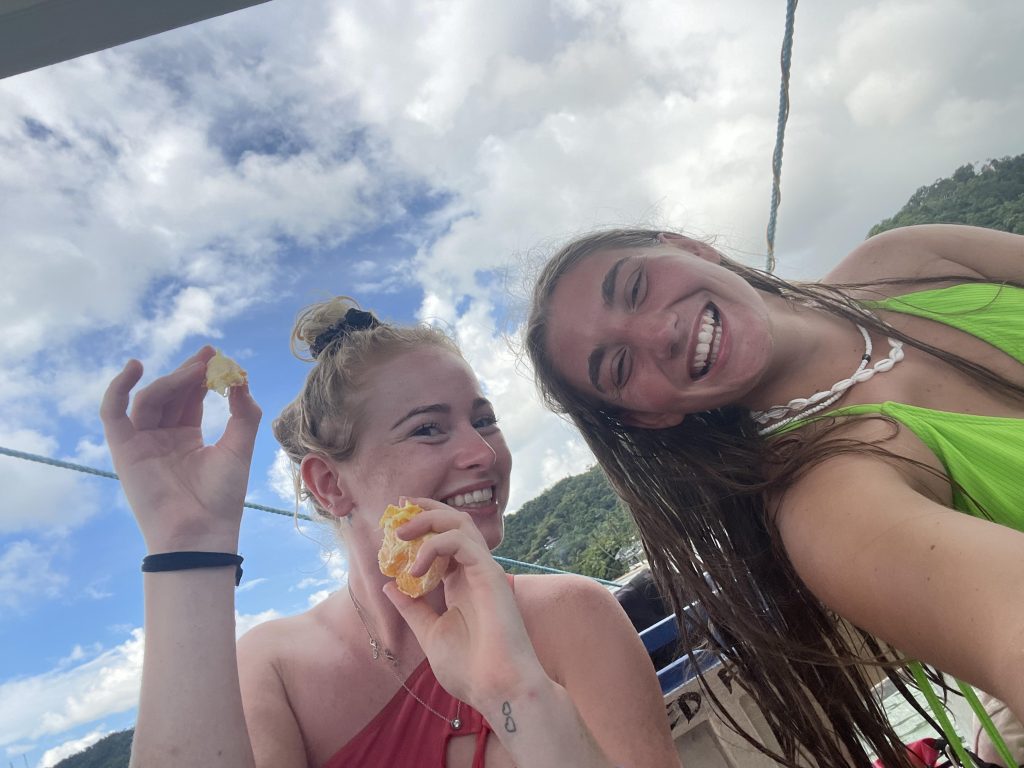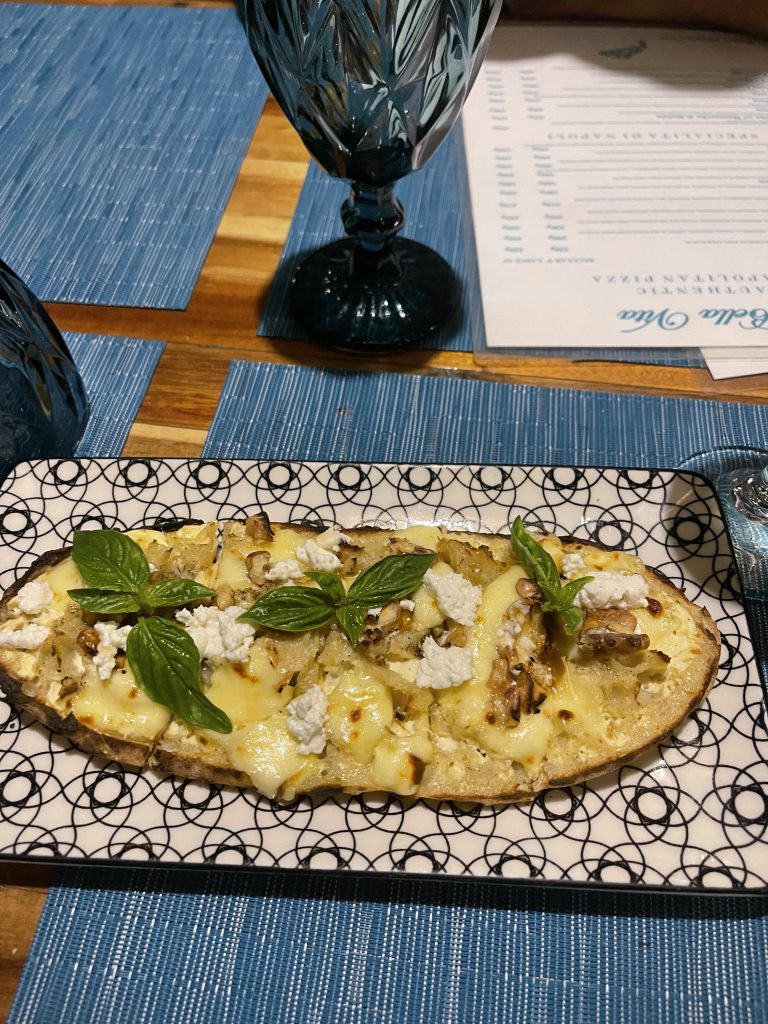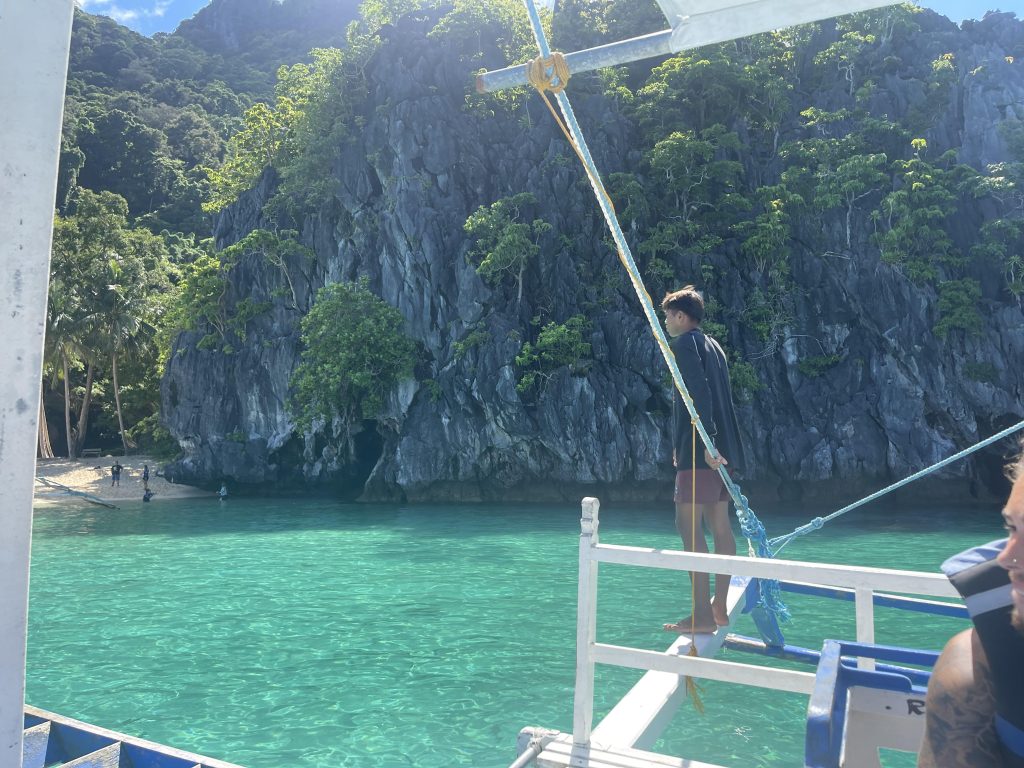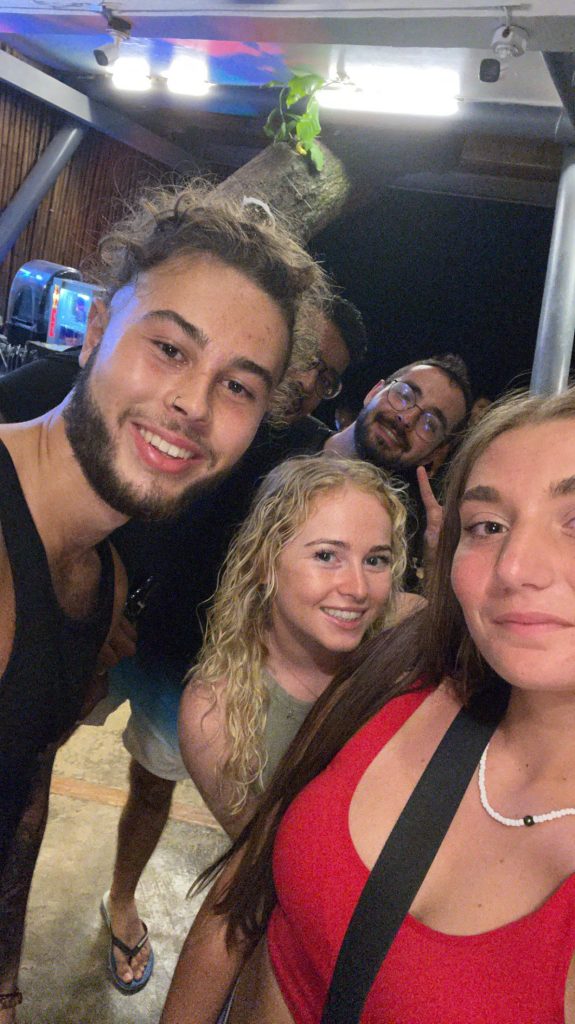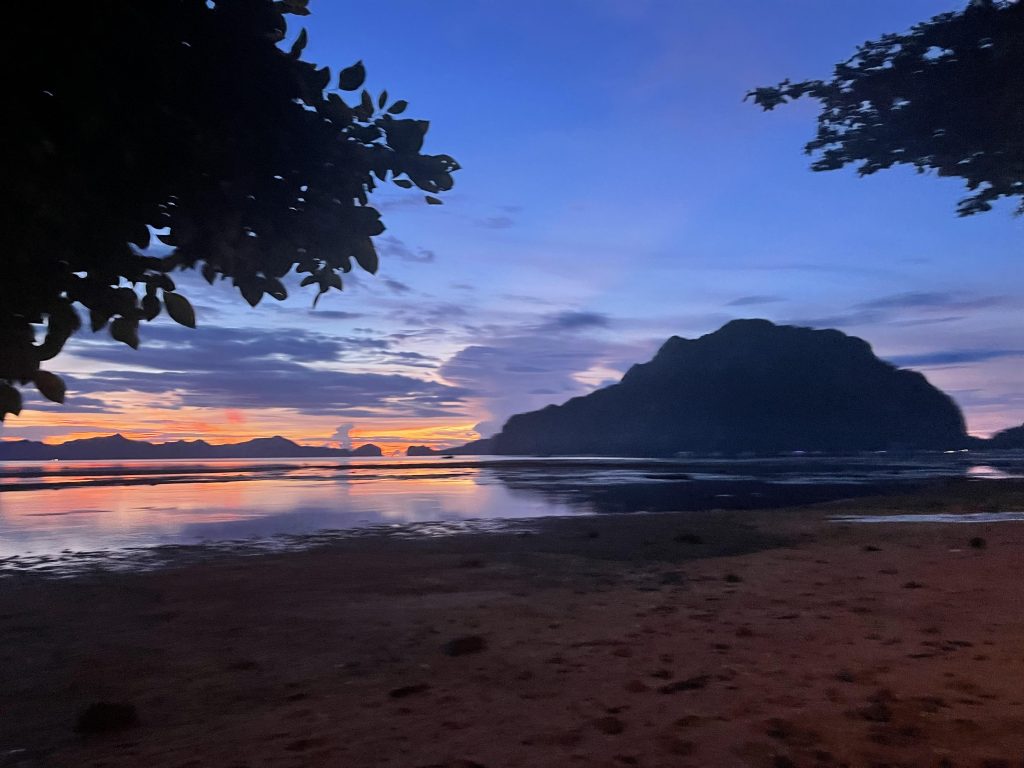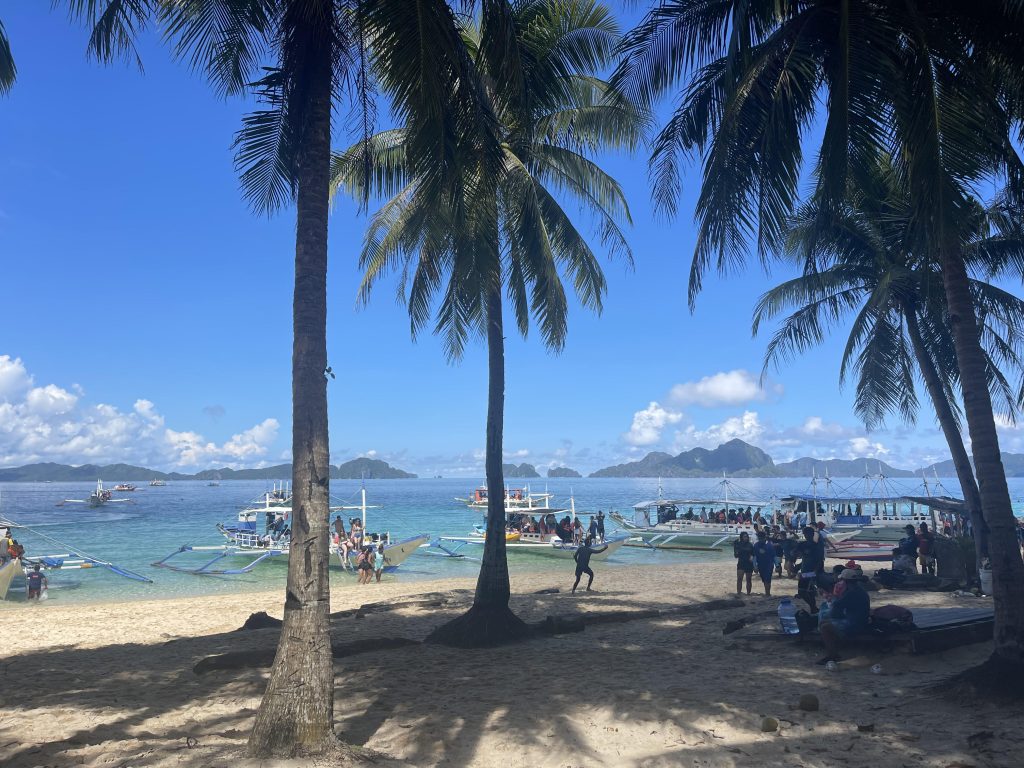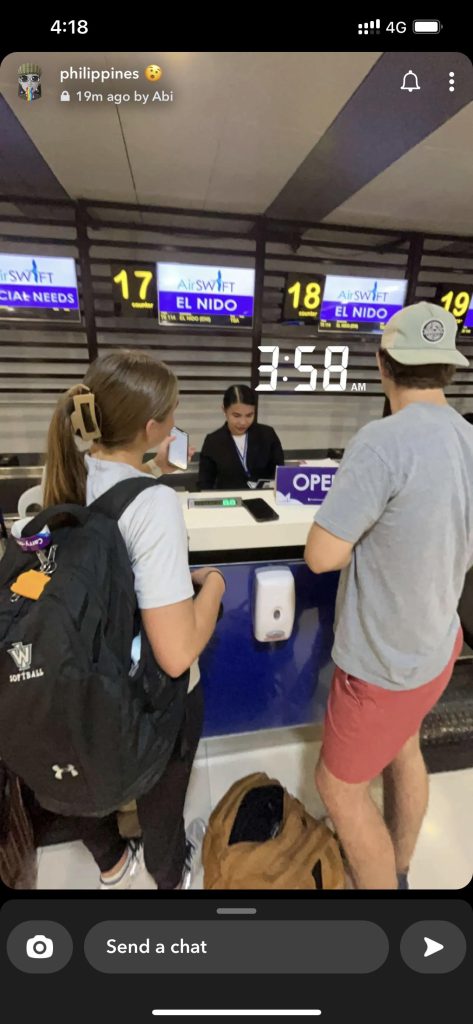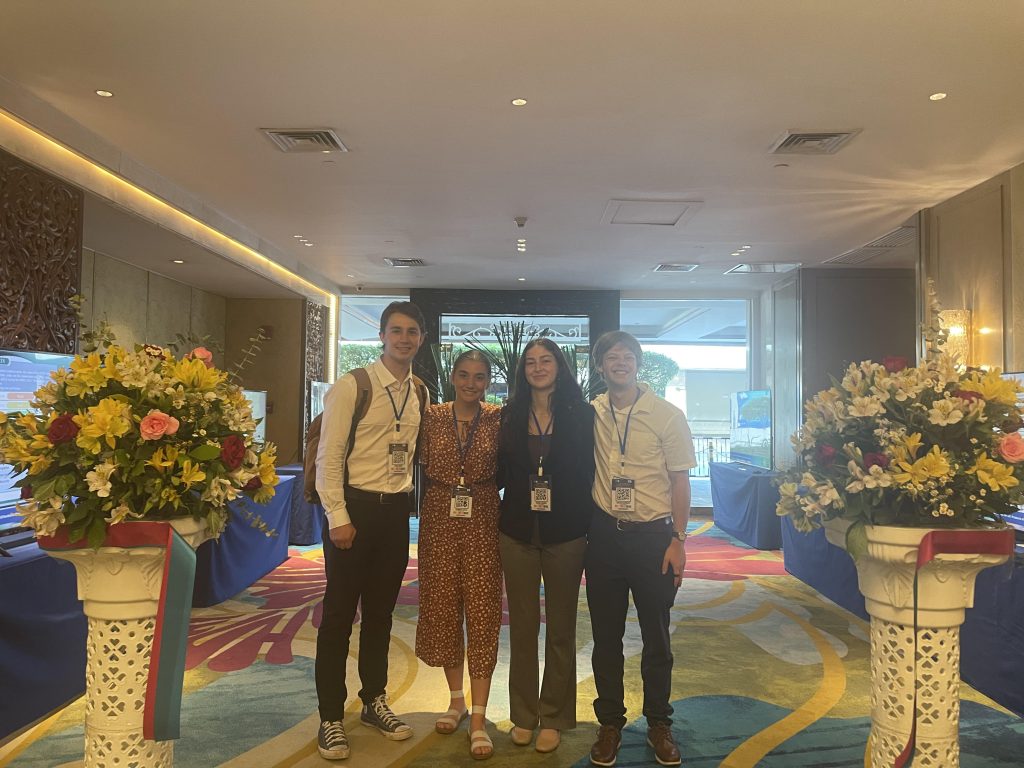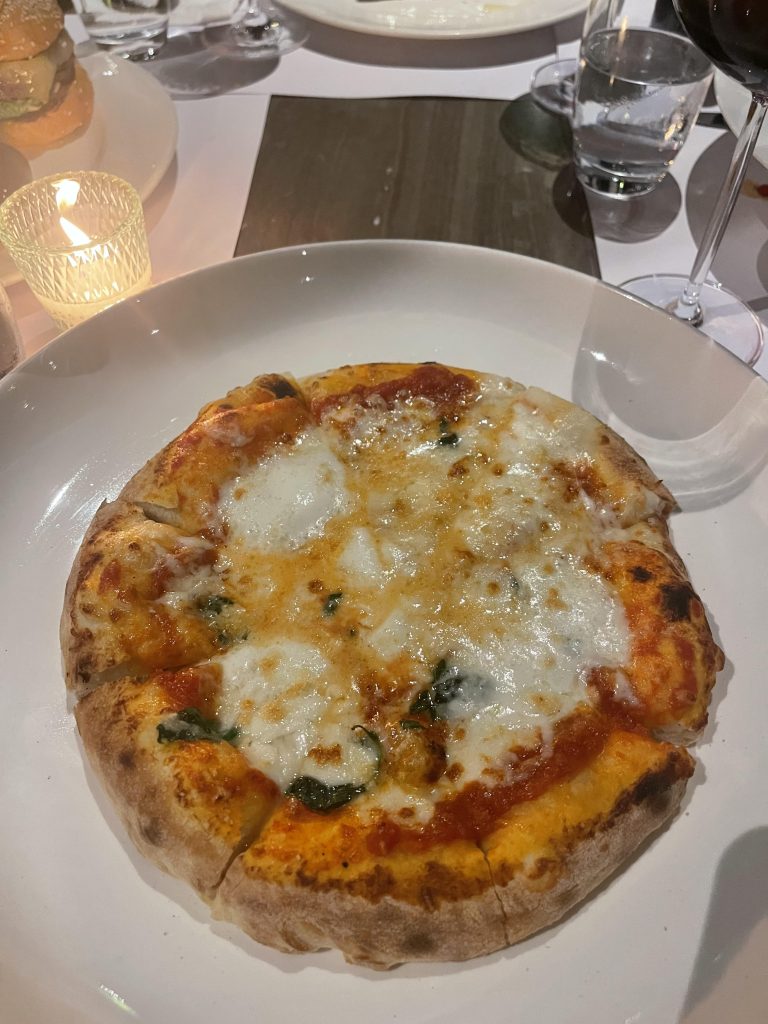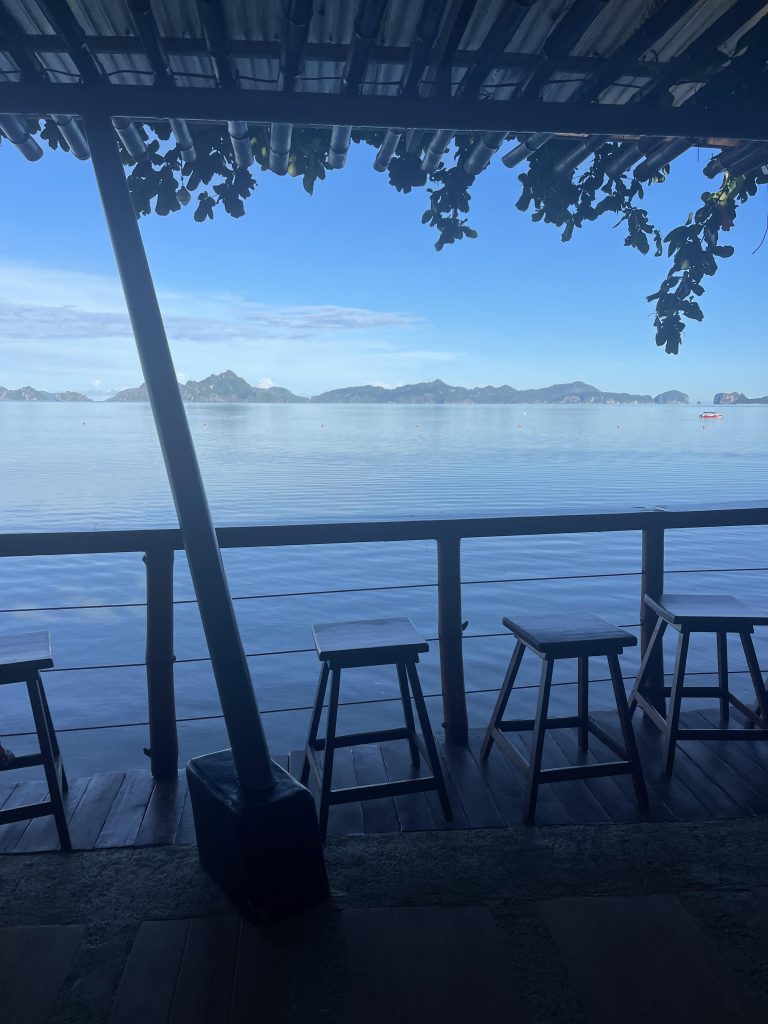On Tuesday, July 4th, we traveled back to Taguig from our field immersion in Pangasinan. We then invited Hunter over to our apartment to celebrate the Fourth of July! We also had to unpack and do laundry after being gone for a week. Although I love our field immersion experiences, I was very happy to sleep in my bed again, take a warm shower, and have access to toilets that flush.
On Wednesday and Thursday, we were able to attend the 49th annual FNRI Seminar Series in the Dusit Thani hotel in Makati, Metro Manila. We learned so much about the research that was conducted in the last year and some of the new technologies developed by FNRI employees. There were several politicians and lawmakers who attended the seminar series. There were also stakeholders and potential investors who attended.
Unfortunately, approximately three out of every ten Filipino households reported being moderately to severely food insecure in the previous National Nutrition Survey. However, researchers at DOST-FNRI are working to decrease the prevalence of food insecurity and are diligently working to made proper nutrition affordable and accessible to all.
In the Philippines, anemia is very prevalent. They explained that anemia causes fatigue, weakness, dizziness, and shortness of breath. In 2019, 2/5 of children 2-69 months were anemic. Among all Filipinos, the overall anemia prevalence was 10.4%. In 1998, the overall anemic prevalence was 30.6%. Therefore, the Philipines has made great progress in the last 25 years although they still have a long ways to go. Anemia is more prevalent among females, those living in rural areas, and those living in poor household. Unfortunately, 23% of women of reproductive age suffer from iron deficiency anemia. The main function of red blood cells is to carry oxygen and other nutrients through the blood and deliver it to the tissues. When there are more red blood cells lost than produced, anemia can develop. There are many different causes such as inadequate intake of iron, vitamin A, vitamin B12, and folate. The most common type of anemia is iron deficiency anemia. The elderly are at an elevated risk for anemia due to their diet, age, and health condition. Iron deficiency anemia is common during pregnancy and can cause preterm labor, increased blood loss during delivery, and low birth rate of the baby. Some ways to combat anemia (specifically iron deficiency anemia) are iron supplements. Additionally, fortifying foods such as rice and flour with iron can help combat iron deficiency anemia. Tea, coffee, cocoa, and chiles slow down the absorption of iron.
Another common theme was combatting malnutrition. Additionally, preventing non communicable diseases through a healthy diet was heavily emphasized throughout the two day seminar. They explained that consuming enough folic acid can prevent birth defects such as spina bifida. The worldwide prevalence of spina bifida is 2 cases in every 1,000 births. One of the presenting chemists explained that fortifying foods with folic acid can effectively prevent birth defects. Additionally, folic acid fortification can prevent depression and promote optimal neural health. This was very interesting to me especially because it directly relates to my degree in Behavioral Neuroscience. This information also helps me to understand why there is a mental health survey included in the National Nutrition Survey that we help administer during our field immersion experience. Although correlation does not necessarily mean causation, it does appear that nutrition may be connected to one’s mood, energy, and overall mental health.
At 5:00 AM on Friday, Abi, Lukas, and I flew to Palawan for our three day weekend. We had the most amazing time and everything there was absolutely beautiful. Other IWU interns from IRRI and Cabrini met us there as well. We stayed at a social hostel called Outpost. We had the opportunity to meet so many amazing people from countries such as France, Spain, Portugal, New Zealand, Australia, London, and so many more! Everyone was so outgoing and friendly- it felt like we were lifelong friends even though we had just met. On Friday, Sam, Lukas, and I tried to swim to another nearby island to rock climb. Unfortunately, it began raining after we had swam about one mile, so some locals on a boat offered to take us to shore. We were so grateful for them as we were clearly in over our heads. On Saturday, all 13 of the interns from IWU did an 8 hour long island hopping tour. This was easily one of the most beautiful things I have ever done and I had the most amazing time. On our tour, we went snorkeling, kayaking through a blue lagoon, swam, played sand volleyball, and so much more. Saturday night, a group of us went into the city and watched live music. It was so much fun and we made friends with people from France!
On Sunday, Lukas, Hunter, and I rode motorcycles around the island of Palawan. We ended up 2 hours away from our hostel and it started raining. We were also on dirt roads, so it was very hard to drive. I was on the back of Lukas’ motorcycle and it tipped over. I had several cuts and bruises and a burn where the exhaust pipe landed. However, the beautiful view that we saw was so worth the minor inconvenience. Lukas went to a local clinic with me because the hostel workers thought I would need stitches. Luckily, it wasn’t too deep and she just cleaned it out and gave me some antibiotics, anti-inflammatory pills, and burn cream. After that, Hunter, Abi, Lukas, and I went to an Italian restaurant on the beach. It was so incredibly good and such a cute place. We then packed up and enjoyed our last night before our early flight Monday morning. Stay tuned for week 6! Below are several pictures from week 5!
